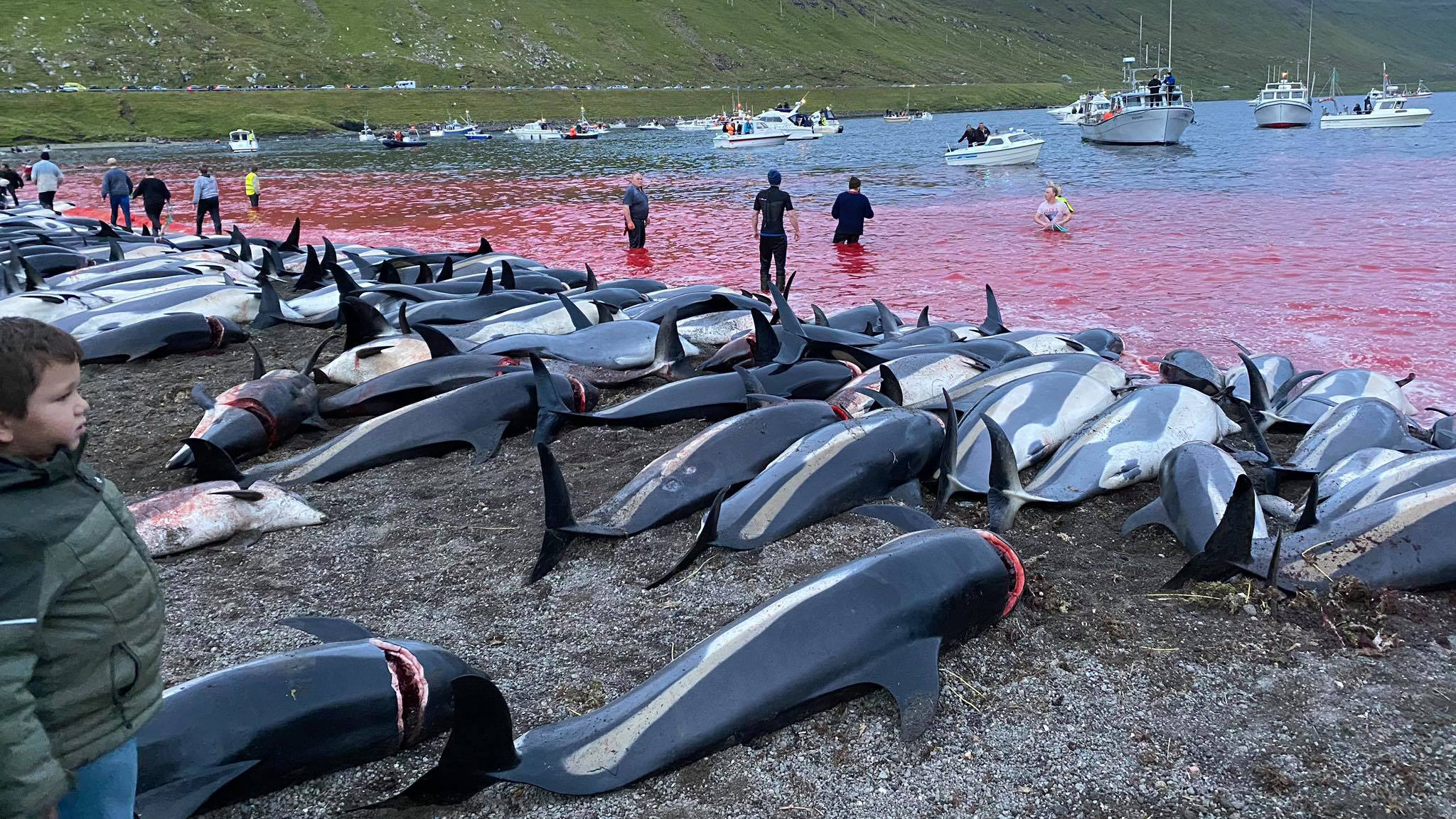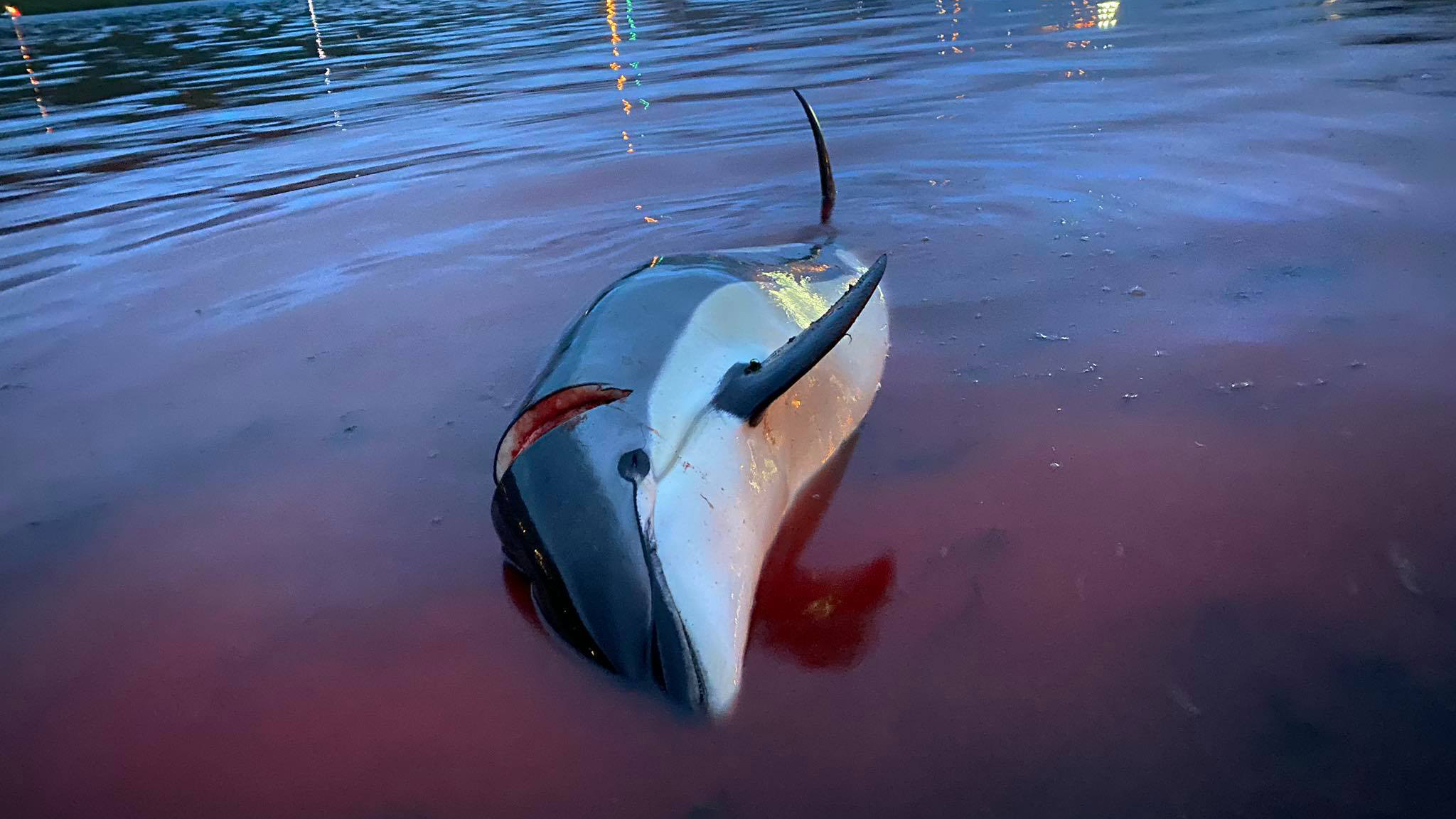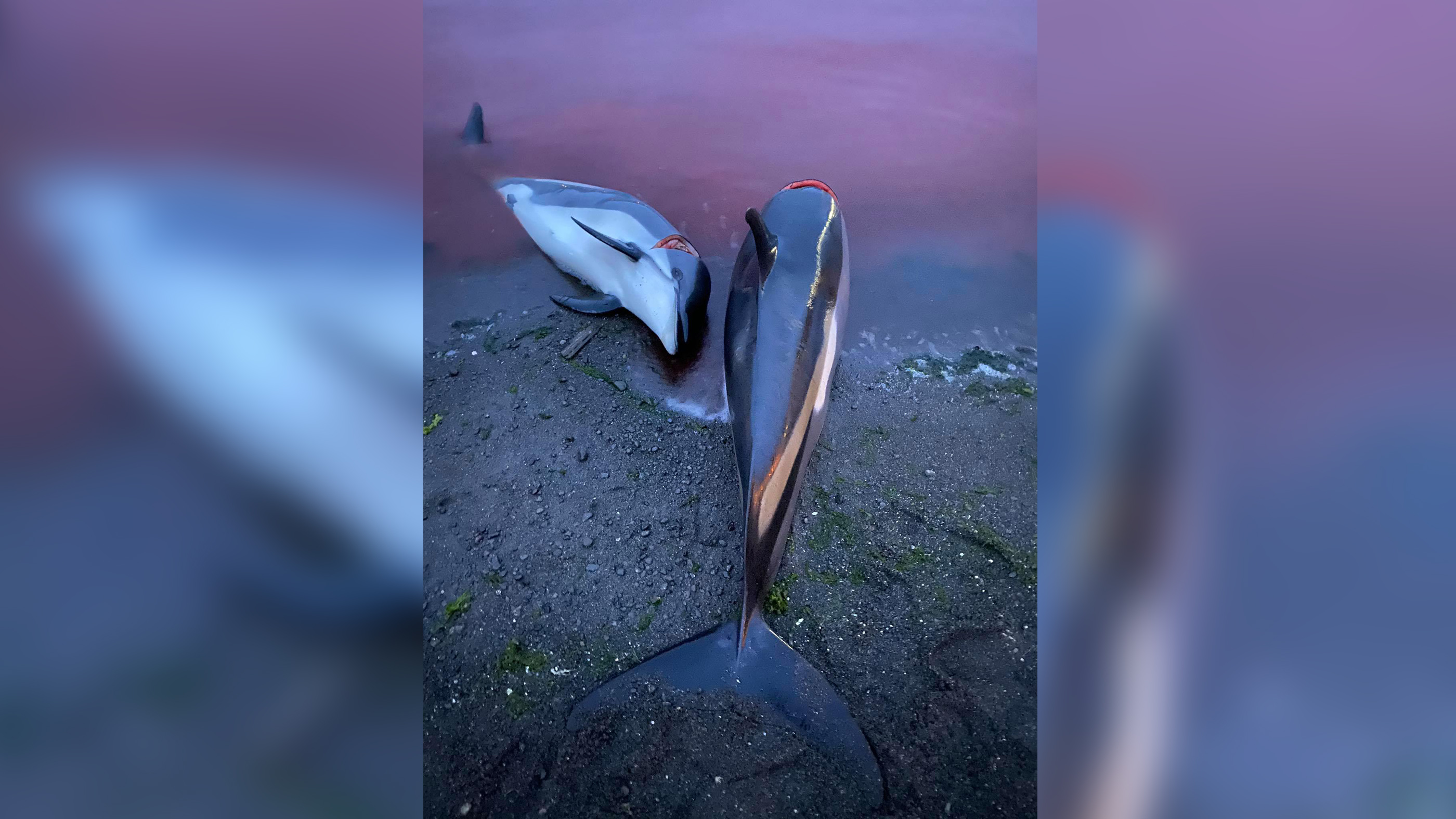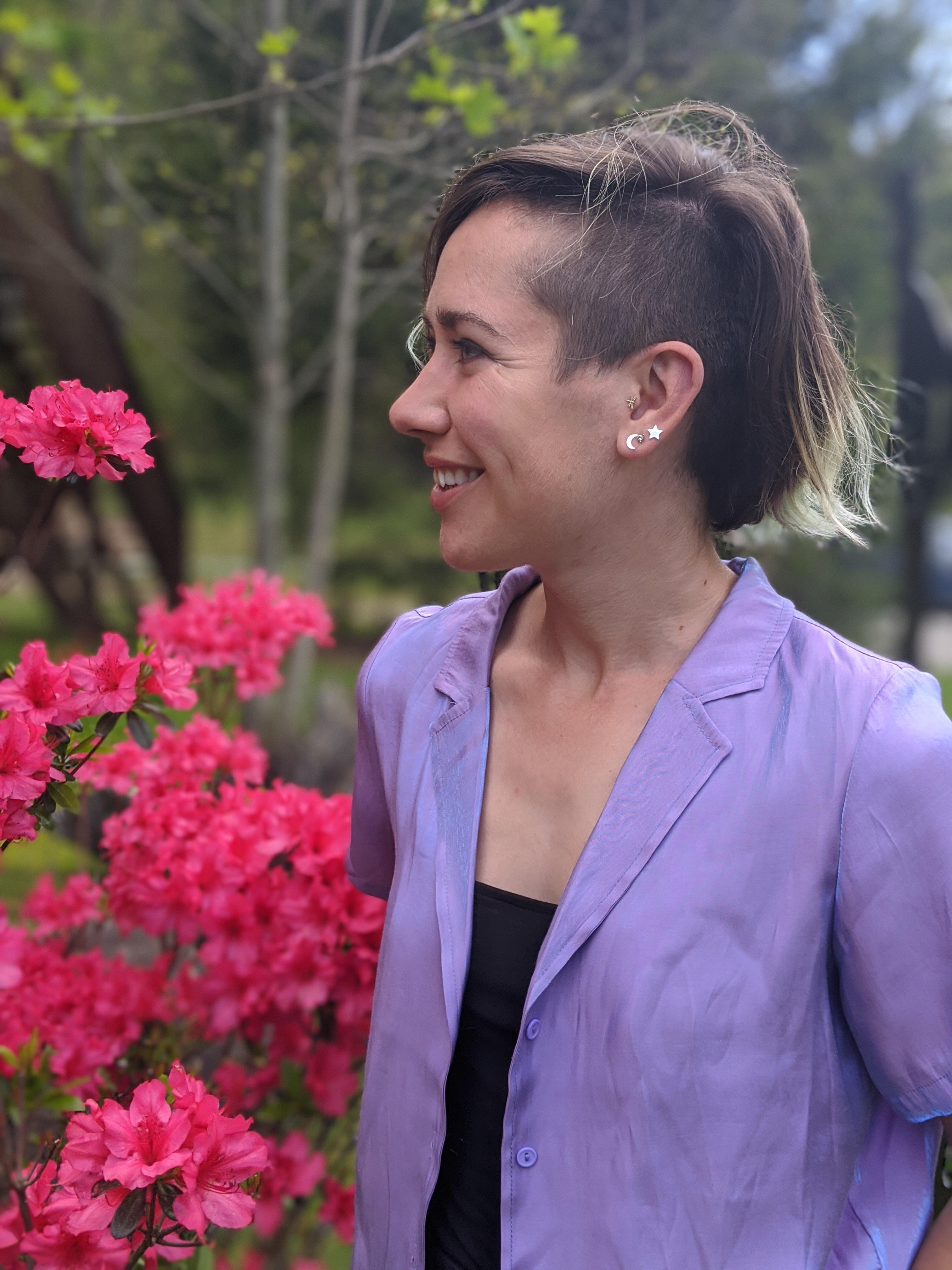Slaughter of more than 1,400 dolphins in the Faroe Islands sparks condemnation worldwide

Warning: This article contains graphic images.
Hunters in the Faroe Islands riding speed boats and jet skis ambushed and slaughtered a super-pod of more than 1,400 white-sided dolphins on Sunday (Sept. 12), leading to outcry from conservationists and even some supporters of the archipelago's centuries-old tradition of killing the marine animals for food. The dolphins' bloody, lacerated corpses have been left lined up on the beach following the killings.
The scale of the slaughter drew outrage from conservationists, Faroese natives and pro-hunting parties alike. The Sea Shepherd Conservation Society described the killings as a "massacre."
Dolphin hunting is an ancient tradition in the Faroe Islands — an autonomous territory of Denmark located between Norway, Scotland and Iceland — that dates back to Viking times. Known as a Grindadráp, or just "the grind," the controversial custom involves driving pilot whales or other large dolphin species into the islands' fjords in order to kill them with a specialized lance. It is the only Indigenous whaling practice still undertaken in Western Europe.
Related: Photos: Orcas are chowing down on great-white-shark organs
Ordinarily, the butchered dolphin meat is portioned out to help feed the community. But some worry that this year's haul will be far too much for the archipelago's roughly 53,000 residents, according to Faroese locals interviewed by the Danish newspaper Ekstra Bladet.
"For such a hunt to take place in 2021 in a very wealthy European island community just 230 miles [370 kilometers] from the UK with no need or use for such a vast quantity of contaminated meat is outrageous," Rob Read, chief operating officer of Sea Shepherd U.K., said in a statement.
Sign up for the Live Science daily newsletter now
Get the world’s most fascinating discoveries delivered straight to your inbox.
According to locals, the hunters vastly underestimated the size of the pod. "It was a big mistake," Olavur Sjurdarberg, the chairman of the Faroese Whalers Association, told the BBC.
When they first spotted the dolphins, the hunting party estimated the pod's numbers to be around 200. Once the killing started, though, it continued until the animals were dead. Bjarni Mikkelsen, a Faroese marine biologist, said it was the single largest kill in the grind's recorded history — the previous record, set in 1940, was 1,200 pilot whales. An average year brings in around 600 pilot whales and 250 white-sided dolphins, according to the Faroe Islands government. "Somebody should have known better," said Sjurdarberg, who was not involved in the hunt. "Most people are in shock about what happened."




While the grind has been heavily criticized by conservation groups for years, it only bubbled up into the wider pop culture consciousness recently, after being featured in the 2021 Netflix documentary "Seaspiracy," a film about the fishing industry's impact on global oceans.
Currently, dolphin hunting in the Faroe Islands is legal, though it does require a license and permission from local authorities. Proponents of the grind worry that Sunday's mass killing will give leverage to environmentalists looking to outlaw (or at least tightly regulate) the practice. And they might be right. The event sparked a massive backlash on social media worldwide, including calls to boycott Faroe Island exports, such as salmon.
Originally published on Live Science.

Joanna Thompson is a science journalist and runner based in New York. She holds a B.S. in Zoology and a B.A. in Creative Writing from North Carolina State University, as well as a Master's in Science Journalism from NYU's Science, Health and Environmental Reporting Program. Find more of her work in Scientific American, The Daily Beast, Atlas Obscura or Audubon Magazine.









